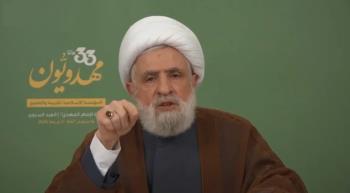ALWAGHT- Iran's oil industry has adopted AI technology with the establishment of its first WRFM center, designed to enhance real-time management of wells, reservoirs, and surface facilities through advanced analytics, senior officials announced.
Iran has taken a major step toward digitizing its oil industry with the launch of its first WRFM center, unveiled by Hossein Afshin, Vice President for Science, Technology, and Knowledge-Based Economy. The center, which focuses on well, reservoir, and facilities management, utilizes real-time data and advanced technologies like AI to enhance decision-making and operational efficiency. Afshin also announced plans to debut the nation’s first AI-powered oil well at the Sepehr and Jofair oil fields next year, alongside the development of Iran’s first smart refinery in Qeshm.
WRFM, or Well, Reservoir, and Facilities Management, streamlines operations by integrating advanced sensors, data systems, and AI-powered analytics to monitor well performance, predict reservoir behavior, and maintain surface infrastructure. Built entirely with domestic expertise and a $10 million initial investment, the center marks a contrast to similar projects in neighboring countries, which often rely on international firms. An additional $5 million is needed to complete subsequent phases, with efforts underway to secure funding.
Afshin emphasized the strategic importance of this initiative, describing it as a breakthrough for Iran's oil sector. He praised Pasargad Energy Development Company for leading the project, which sets a precedent for other firms to follow. By incorporating machine learning algorithms and advanced analytics, the center aims to deliver precise predictions, increased automation, and reduced operational risks, aligning Iran's oil and gas operations with global standards.
The WRFM center represents a critical step toward practical digital transformation in Iran’s upstream oilfield management. It highlights the government’s long-term vision for leveraging AI to achieve innovation and efficiency, potentially serving as a model for other industries. Afshin concluded that the investment is a leap toward a smarter, more competitive future for Iran’s oil sector, promising significant progress and global relevance.



























